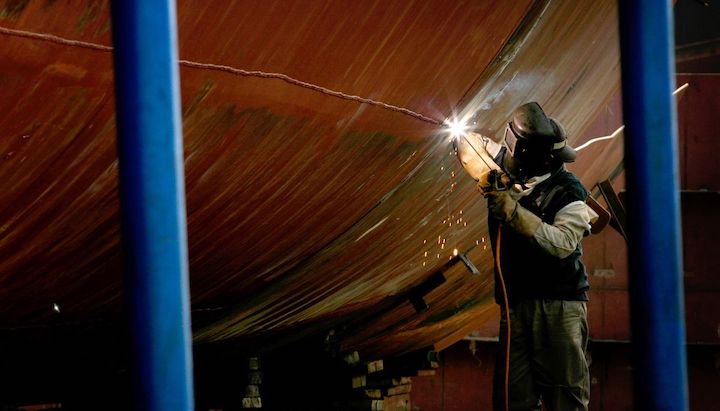India’s ship-demolition industry, among the world’s largest, is having to scale back the dismantling of obsolete vessels to help the nation cope with a surge in coronavirus cases, joining several other sectors already affected by a shortage of oxygen at the nation’s hospitals.
Workers on beaches in India and other countries on the subcontinent use oxygen-fueled blow torches to cut up giant freighters once they’ve reached the end of their useful lives. Because of the shortage, any oxygen supplies that could have been diverted toward hospitals have been, according to Anil Sharma, the chief executive officer of Global Marketing Systems Inc., a company that buys vessels from owners and sells them to the yards for recycling.

Capacity to break up the aging freighters has dropped by 80% in the past week, GMS estimates. There are other examples of industries being affected by the oxygen shortage. Maruti Suzuki India Ltd., the nation’s biggest carmaker, said it is shutting its plant for maintenance to divert supplies to hospitals, while India’s steel output may decline as more and more steelmakers divert their oxygen stocks for medical purposes.
The delivery of vessels for scrapping had already been heavily curbed as various countries banned seafarers from traveling to and from India. This may negatively impact the buying and selling of ships, resulting in constrained supply of carriers for recycling, Sharma said.
Availability of carriers for scrapping had anyway declined in recent months amid high freight rates in several shipping sectors. Only 43 ships were recycled at Alang, India in the first quarter of 2021, a 27% drop from the same period last year, according to GMS.
“Profitability for the ship-recycling industry won’t go down, as steel fundamentals are strong,” Sharma said. “Oxygen shortages in India should ease in a few weeks with an acceleration in the setup of production plants, but supply of ships may be limited.”









